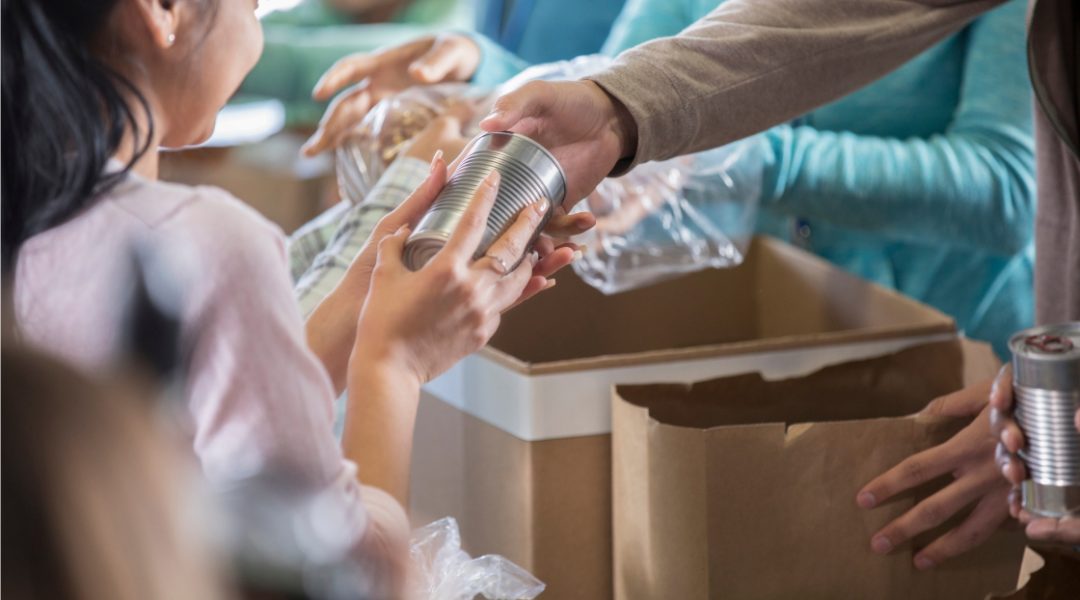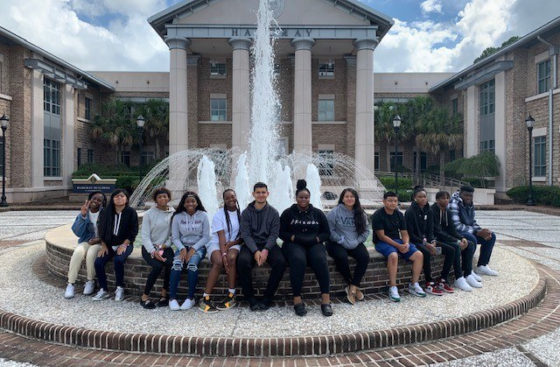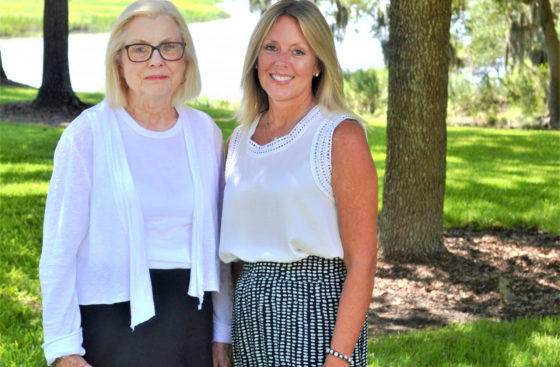Impact
The Lowcountry Community COVID-19 Response Fund: One Year Later
March 29, 2021
When COVID-19 was declared a pandemic, the fallout was sudden for many of our neighbors.
Nonessential businesses went remote, creating work stress and virtual learning challenges for parents. Families of essential workers fared worse, having to scramble for childcare when school buildings were closed. Many shops and restaurants immediately shifted to online or delivery only, disrupting the livelihoods of thousands of hospitality and retail workers. Some of our longstanding Lowcountry companies shuttered, never to recover. Shortages on everything from toilet paper to thermometers quickly reached our grocery shelves. Physician offices and medical clinics canceled noncritical appointments and procedures. Low-income families quickly fell behind on rent, mortgages and utilities, with bills piling up every month.
The list could go on.
Every individual, every family and every organization has their own unique stories of how the pandemic abruptly changed their lives.
But we have a story, too. It’s a story of how a generous community came together – and are still coming together – to meet their neighbors’ needs. This is the story of our Lowcountry Community COVID-19 Response Fund.
We established the fund on March 20, 2020. At the beginning, we pledged to match the first $200,000 in donations, and we invited the community to join in. At the one-year mark, we were pleased to announce that generous donors throughout the Lowcountry had donated more than half a million dollars since the start of the fund. During this time, we were able to take the combined contributions and grant nearly $700,000 to area nonprofits that are serving residents impacted by the pandemic. This deployment of funds benefited 43 agencies and supported efforts in all four counties of our service area: Beaufort County, Colleton County, Hampton County and Jasper County.
Our Donors Gave Generously
When it came to responding to the pandemic, we found there was no “typical donor.” Our response fund donors continue to represent a diverse range of geographic locations and income levels throughout our region. Some were even first-time donors to Community Foundation of the Lowcountry. In all, we had nearly 1,000 individuals and organizations donate to the response fund during its first year – the commonality among them was a desire to help neighbors in need.
We recently asked these donors to take a survey about their experience of the pandemic. One of our questions to them was “What motivated you to donate to the Lowcountry Community COVID-19 Response Fund?” Respondents were allowed to pick more than one response.
We found that a belief about the seriousness of the pandemic, as well as concern for our community, were what moved donors most. Here are how their motivations stacked up:
- 67% - “The COVID-19 pandemic is an urgent and serious issue.”
- 56.8% - “A desire to help as many of my neighbors as possible.”
- 56.8% - “The Community Foundation’s knowledge of community needs.”
- 50.9 % - “The knowledge that my donation would help people across the Lowcountry.”
Other responses focused on the Community Foundation’s reputation in the community and our history of responding to previous disasters, like Hurricane Matthew.
We found our respondents were also concerned about the seriousness of the issues faced by our community. For our question about specific pandemic-related issues, we asked these donors to select their top concern. Here’s how their responses ranked:
- 36.5% - Food insecurity
- 21.1% - Unemployment or underemployment
- 19.2% - Children falling behind at school
- 7.6% - Housing insecurity
- 7.6% - Health care access
- 7.6% - “All of the above” or “Equally concerned”
Nearly half of our respondents said they knew someone impacted by one or more of these – particularly the issues of unemployment/underemployment and children falling behind at school. One donor who responded to our survey said:
“This pandemic has made me more aware of the inequities in the Lowcountry and the need for us to support our community more.”
Our Community Responded Creatively
When many of our donors heard about our response fund – whether in the local news media, through one of our emails to the community or in some other way – they jumped into action, either sending in checks to our office, or donating through our online donation portal. But plenty of donors got into the spirit by creating fundraisers for our fund, which can be easily done through our donation page.
Several people hosted birthday fundraisers, and some local businesses joined in with their own campaigns. For example, Camelot Limousine, in the early stages of the pandemic, offered to pick up prescriptions, groceries and take-out orders for locals. Their stipulation was that, instead of payments, donations be directed to our response fund.
There were also businesses, organizations and funds that partnered with us by hosting fundraisers on their own websites and donation pages. Club Outside, for instance, ran a membership special on their website that diverted donations both to their laid-off employees and to our response fund. And Hampton Hall Charitable Fund created a crowdfunding campaign on their donation site.
We created a separate fundraiser too. Through special coordination with the Hilton Head Island Office of Cultural Affairs and the talented musicians in the popular Lowcountry act, Deas-Guyz, we hosted a virtual benefit concert. Deas-Guyz recorded a special performance for which all “ticket sales” would benefit our response fund. Fans were able to watch the concert virtually through a “pay as you can” sign-up. In all, the benefit concert raised more than $16,000 for the fund.
(Be sure to check out the donation page from time to time to view any current fundraising campaigns. These campaigns often feature shops, spas and other businesses in the area.)
Our Grant Recipients Served Passionately
The money raised through our Lowcountry Community COVID-19 Response Fund and related fundraisers has supported the community through grants to local nonprofits. These are frontline organizations serving the individuals and families who've been significantly impacted by the pandemic. At the one-year mark of our response fund, we had already granted $655,400 to nonprofits in and/or serving our four-county service area. In all, this was 43 agencies.
(To see a full list of our grant recipients, the programs funded by the grants and the counties they’re serving, please visit here.)
During our response fund grant cycles, we have often focused on specific areas of impact – whether it be food insecurity, housing insecurity, educational challenges or other issues.
In a recent survey sent to our Lowcountry Community COVID-19 Response Fund grant recipients, they reported on the issues their particular organization has been dealing with the most since the pandemic started. This is how the issues ranked:
- 44.4% - Food insecurity
- 16.6 % - Other issues (e.g. childcare, mental health, etc.)
- 13.8% - Housing insecurity
- 11.1 % - Children falling behind at school
- 8.3% - Unemployment or underemployment
- 5.5% - Health care access
A whopping 97.2% of these nonprofit organizations said they were able to help more families and individuals than they would have, thanks to a grant from the Lowcountry Community COVID-19 Response Fund.
Many also reported they were able to expand their service area, gain more volunteers – and gain more donors. In fact, one of our donors said about our response fund:
“It has heightened my awareness of local nonprofits and increased my desire to give.”
Donors have also expressed an interest in helping Lowcountry neighbors throughout the region. This is a key aspect of our mission, so response fund grants have been designed to reach residents in all four counties of our service area. To achieve this, we have worked with nonprofit organizations serving these communities.
Based on their own reporting in the survey we sent them, our grant recipients’ work is spread out accordingly:
- 55.5% - Jasper County
- 52.7% - Southern Beaufort County
- 33.3% - Hampton County
- 30.5% - Northern Beaufort County
- 13.8 % - Colleton County
One of our grant recipients said of their ability to reach those in need in an expanded service area:
“Without our recent grant award, we would not have been able to provide the desperately needed supplemental food to our Jasper County residents. This grant has afforded us the opportunity to bring hope back to our community.”
Despite the important and impactful work our grant recipients are and have been doing in Lowcountry communities, the need is still great. Fifty percent say pandemic-related needs have increased among those they serve. When asked how far into the future they expect to still be addressing pandemic-related needs, this is how they responded:
- 38.8% - 18 months to 2 years
- 36.1% - 1 more year
- 13.8% - 6 more months
- 8.3% - Beyond 2 years
This means many of our neighbors will continue to struggle with issues like food and housing insecurity for many more months, or years.
We intend to continue helping our Lowcountry nonprofits address these needs. Our story is ongoing. It’s a shared story.
Please consider joining our Lowcountry response. You can support our efforts by donating to our Lowcountry Community COVID-19 Response Fund.
Donor survey based on 52 unique responses of verified Lowcountry Community COVID-19 Response Fund donors. Nonprofit survey based on 37 unique responses of Lowcountry Community COVID-19 Response Fund grant recipients.


